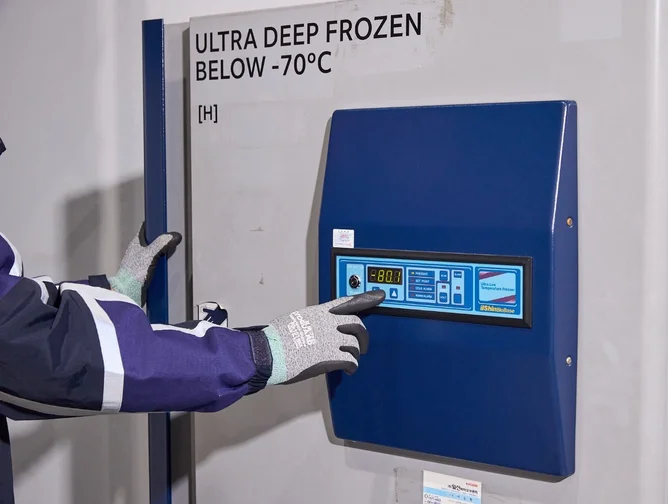FedEx’s expansion of its state-of-the-art Korea Life Science Center is the latest proof of its commitment to supporting healthcare logistics.
FedEx’s immense capabilities in logistics and transportation extend to healthcare, with the organisation well positioned to empower patient care with innovative shipping methods.
The expansion of its state-of-the-art Korea Life Science Center in Gimpo, South Korea, is the latest proof of its commitment to supporting the sector.
This strategic enhancement, in conjunction with the FedEx Life Science Centers in Singapore and Japan, is addressing rising demand for a robust logistics network that supports the rapidly growing healthcare industry across the Asia-Pacific (APAC) region.
Strengthening life sciences logistics
The improved FedEx Korea Life Science Center spans 2,288 square metres, making it almost triple the size of the previous facility.
It includes five temperature-controlled areas for temperatures ranging from -150°C to 25°C, which are monitored 24/7 to ensure continuous compliance with pharmaceutical cold chain requirements.
Crucially, the facility is Korea Good Supply Practice-certified in accordance with market-specific quality and regulatory requirements for the healthcare industry.
Along with temperature-controlled inventory management capabilities, the Korea Life Science Center is equipped to support both domestic and international transportation needs.
By expanding its capacity, FedEx is strengthening its life sciences logistics expertise, ensuring seamless and reliable transportation of critical healthcare shipments including investigational medicinal products (IMP), biological samples and biopharmaceutical product lines, while enabling pharmaceutical and clinical-trial customers to prioritise patient care.
“Asia-Pacific’s healthcare sector is evolving at an unprecedented pace, driven by demographic shifts, infrastructure investments and rapid tech advancements,” explains Kawal Preet, President, Asia Pacific at FedEx.
“At FedEx, we are leveraging our decades of healthcare expertise, extensive global network and differentiated solutions to propel this growth. Through strategic investments in cutting-edge facilities and AI-driven smart logistics, we are reshaping healthcare supply chains and enabling the future of life sciences research and business innovation across the region.”
FedEx’s dedication to healthcare
APAC’s pharmaceutical market is projected to reach US$290bn by 2028, according to Statista, while research from GlobalData has discovered the region already accounts for around half of global clinical trials – highlighting its increasingly prominent role in global pharmaceutical R&D.
Clearly, customers in the healthcare and pharmaceutical sector need precise, temperature-controlled services to preserve product efficacy.

With decades of experience under its belt, FedEx provides expertise in specialised healthcare and clinical trial solutions, enabled by its international Express network, customised time-critical special services and a global network of Life Science Centers, with locations in Korea, Singapore, Tokyo, Mumbai, Memphis and Veldhoven in the Netherlands.
The company’s extensive healthcare infrastructure also includes more than 130 cold-chain facilities worldwide, ensuring continuous temperature integrity for shipments moving through domestic and international networks.
What’s more, FedEx Clinical Care, part of the company’s portfolio of dedicated healthcare transportation solutions, provides end-to-end delivery capabilities for time- and temperature-sensitive healthcare shipments. It ensures expedited delivery within 24-48 hours, leveraging specialised features including temperature-controlled packaging, priority handling and clearance and 24/7 monitoring and intervention using sensor-based, real-time tracking.
FedEx’s efforts in the healthcare logistics space certainly aren’t going unnoticed.
The business was recognised for ‘Innovation in Clinical Supply Chain Logistics’ at the Korea Biopharma Excellence Awards 2024, owing to its exceptional contribution to clinical supply chains in Korea.



